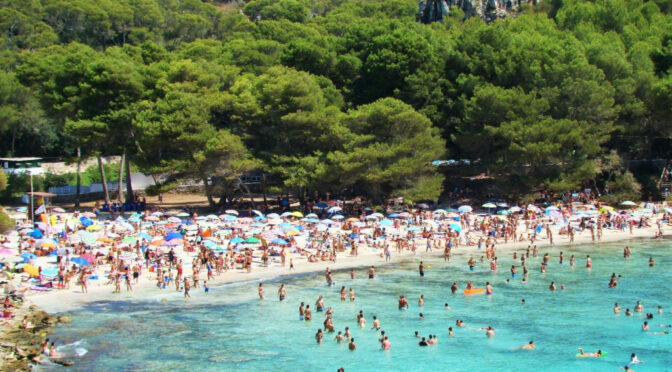Views: 222
Organised civil society, that works to achieve collective interests, is now more necessary than ever in our archipelago: to work on environmental, social and economic aspects. During the weekend of 17 June GOB brought together its Balearic Islands sections and analysed the new political context.
The problem of tourist overcrowding would increase if the messages spread by the political parties forecast to form new government teams were applied. This route is considered wrong with loss of residents’ quality of life, with great pressure on natural values and a loss of positive economic results.
The impossibility of a large part of the resident population to visit certain beaches during the tourist season, the enormous difficulty to find parking in areas taken over by tourist vehicles, the price of housing that, in many cases, prevents exercising a constitutional right, are some of the social effects of the growing and unidirectional commitment towards mass tourism.
In economic terms, tourist overcrowding goes against per capita income as picked up by economic publications. In 1983, the province of the Balearic Islands was second in the state ranking. At that time, 4.3 million tourists visited the islands. In 2022, the Balearics appeared in 22nd place for state ranking, having received 16.5 million tourists.
It is clear that overcrowding does not contribute to the welfare of society, but only to certain activities that are extracted in economic terms, that is, extracting profits generated by the island and taken to other places.
This excess pressure shows repeated planning errors. Ibiza has three desalination plants and the aquifers are overexploited. Mallorca has been widening roads and new road infrastructures continue to be announced. In Menorca the sensation of saturation is growing and undeclared tourist accommodation takes up homes that should be for residents.
Faced with these growing problems, GOB has agreed for the society to work to promote control measures that will help social welfare and environmental recovery.
There are tools for these measures that can be used such as establishing a limit on the vehicles of each island, which has been successfully tested in Formentera; such as regulating the abusive extractions of water; such as management of the nautical offer without degrading natural values nor the quality of the experience of those using it; such as putting a brake on the promotion of summer tourism; such as the correct management of protected areas for conserving and recovering natural values.
Society is usually ahead of institutions in vision and commitment for the future. The islands need to organise themselves to find ways that balance conservation with non-speculative progress.

